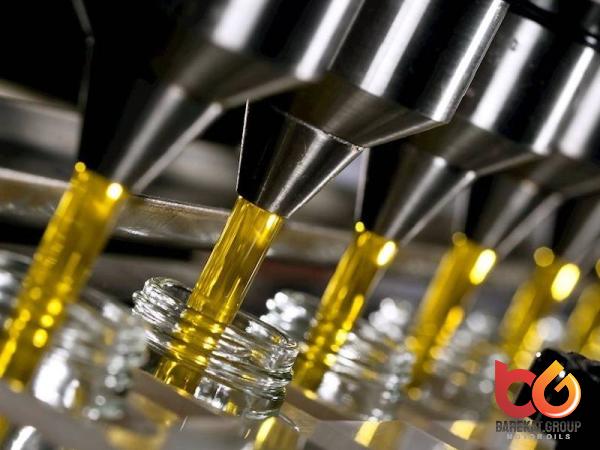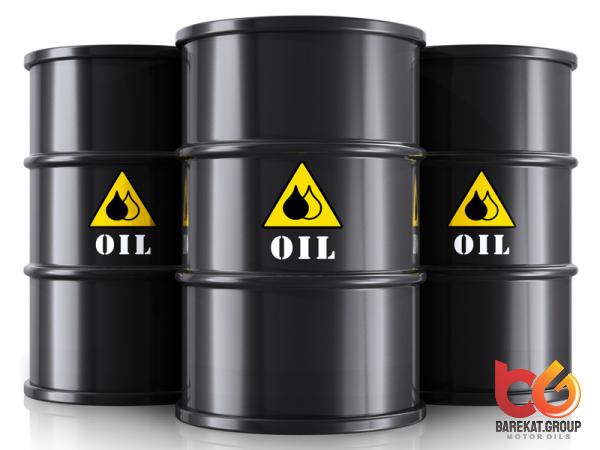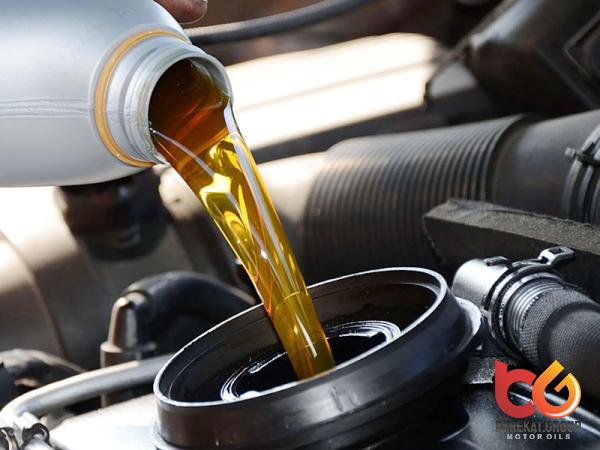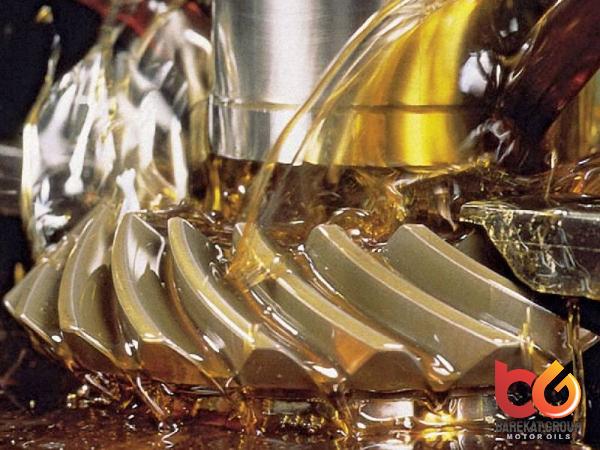Exploring the Benefits and Applications of High Viscosity Engine Oil Introduction: Engine oil plays a crucial role in the efficient functioning and longevity of an engine. One important factor to consider when selecting engine oil is its viscosity, which refers to its resistance to flow at different temperatures. While the industry standard often recommends lower viscosity oils for better fuel economy, there are instances where high viscosity engine oil may be more beneficial. In this article, we will delve into the concept of high viscosity engine oil, its advantages, potential applications, and some popular products on the market today. Understanding Viscosity: Viscosity is a fundamental property of fluids and is measured using the Society of Automotive Engineers (SAE) numerical grading system. The number preceding the “W” represents the oil’s cold temperature viscosity, while the number after the “W” represents its high temperature viscosity. Higher numbers indicate a higher viscosity, meaning the oil is thicker and less likely to flow easily. Conversely, lower numbers represent lower viscosity oils that flow more readily. Benefits of High Viscosity Engine Oil: 1. Enhanced Wear Protection: High viscosity oils generally provide better protection against engine wear and tear. The thicker viscosity creates a thicker film of oil between the engine parts, reducing metal-to-metal contact and preventing friction-induced damage. 2. Improved Seal Conditioning: High viscosity oils are especially beneficial for older engines that may have worn seals. The thicker oil can help to rejuvenate and rehydrate seals, reducing oil leakage and improving engine performance. 3. Reduced Oil Consumption: Engines that burn or consume excessive amounts of oil may benefit from high viscosity oil. Due to its thicker nature, high viscosity oil is less prone to vaporize and burn off, resulting in reduced oil consumption and fewer top-ups. 4. Enhanced Engine Stability and Protection at High Temperatures: High viscosity oils offer improved stability and protection to engines operating under extreme conditions, such as heavy loads, towing, or operating in high ambient temperatures.
Engine oil
 They maintain their thickness better, ensuring adequate lubrication and preventing viscosity breakdown. 5. Combatting High Engine Stress: Vehicles used for heavy-duty applications, such as trucks, commercial vehicles, and off-road equipment, place significant stress on engines. High viscosity oil can provide the necessary protection and lubrication to handle these demands, safeguarding the engine from wear and damage. Applications of High Viscosity Engine Oil: 1. Racing and High-Performance Engines: High-performance vehicles, including race cars and sports cars, often demand high viscosity oils to withstand the extreme operating conditions and stress levels. Engines equipped with turbochargers or superchargers can also benefit from the added protection offered by high viscosity oils. 2. Older Engines: Vintage cars, classic vehicles, or older engines that tend to experience oil leakage or burning oil may benefit from the thicker consistency of high viscosity oils. These oils can help to seal gaps and reduce oil consumption, extending the lifespan of such engines. 3. Heavy-Duty and Industrial Applications: Engines used in heavy machinery, construction equipment, aircraft, marine vessels, and power generators often require high viscosity oils due to the substantial loads, constant operation, and extreme temperatures associated with these applications. High viscosity oils provide the necessary protection and performance under these demanding conditions. Popular High Viscosity Engine Oil Products: 1. Mobil 1 High Mileage Synthetic Motor Oil: This product is specifically formulated for older engines with over 75,000 miles. It offers enhanced wear protection, reduced oil consumption, and improved engine performance. 2. Valvoline Premium Blue Extreme Full Synthetic SAE 5W-40 Engine Oil: This oil is specifically designed for heavy-duty applications, providing outstanding protection for diesel engines under high-stress conditions. 3. Castrol EDGE Supercar Full Synthetic Motor Oil: This oil is developed for high-performance engines, providing exceptional protection and reducing metal-to-metal contact. Conclusion: While lower viscosity oils are typically recommended for improved fuel efficiency, there are situations where high viscosity engine oil is advantageous. The benefits of high viscosity oils, such as improved wear protection, seal conditioning, reduced oil consumption, stability at high temperatures, and protection under extreme stress, make them suitable for specific applications. High-performance engines, older engines, and heavy-duty industrial applications can significantly benefit from the added protection and lubrication provided by high viscosity oils.
They maintain their thickness better, ensuring adequate lubrication and preventing viscosity breakdown. 5. Combatting High Engine Stress: Vehicles used for heavy-duty applications, such as trucks, commercial vehicles, and off-road equipment, place significant stress on engines. High viscosity oil can provide the necessary protection and lubrication to handle these demands, safeguarding the engine from wear and damage. Applications of High Viscosity Engine Oil: 1. Racing and High-Performance Engines: High-performance vehicles, including race cars and sports cars, often demand high viscosity oils to withstand the extreme operating conditions and stress levels. Engines equipped with turbochargers or superchargers can also benefit from the added protection offered by high viscosity oils. 2. Older Engines: Vintage cars, classic vehicles, or older engines that tend to experience oil leakage or burning oil may benefit from the thicker consistency of high viscosity oils. These oils can help to seal gaps and reduce oil consumption, extending the lifespan of such engines. 3. Heavy-Duty and Industrial Applications: Engines used in heavy machinery, construction equipment, aircraft, marine vessels, and power generators often require high viscosity oils due to the substantial loads, constant operation, and extreme temperatures associated with these applications. High viscosity oils provide the necessary protection and performance under these demanding conditions. Popular High Viscosity Engine Oil Products: 1. Mobil 1 High Mileage Synthetic Motor Oil: This product is specifically formulated for older engines with over 75,000 miles. It offers enhanced wear protection, reduced oil consumption, and improved engine performance. 2. Valvoline Premium Blue Extreme Full Synthetic SAE 5W-40 Engine Oil: This oil is specifically designed for heavy-duty applications, providing outstanding protection for diesel engines under high-stress conditions. 3. Castrol EDGE Supercar Full Synthetic Motor Oil: This oil is developed for high-performance engines, providing exceptional protection and reducing metal-to-metal contact. Conclusion: While lower viscosity oils are typically recommended for improved fuel efficiency, there are situations where high viscosity engine oil is advantageous. The benefits of high viscosity oils, such as improved wear protection, seal conditioning, reduced oil consumption, stability at high temperatures, and protection under extreme stress, make them suitable for specific applications. High-performance engines, older engines, and heavy-duty industrial applications can significantly benefit from the added protection and lubrication provided by high viscosity oils.
Specifications of Engine oil
 It is essential, however, to consult the vehicle manufacturer’s guidelines and recommendations before using high viscosity oil to ensure compatibility and optimal performance.I. The Impact of Viscosity on Engine Performance and Longevity The viscosity of engine oil directly influences how well an engine performs and how long it lasts. The correct oil viscosity ensures that crucial engine components, such as bearings, pistons, and cylinder walls, receive adequate lubrication to minimize friction and wear. High viscosity engine oil offers several advantages in terms of wear protection, seal conditioning, reduced oil consumption, stability at high temperatures, and protection under extreme stress. II. Enhanced Wear Protection for Optimal Engine Performance One of the critical benefits of high viscosity engine oil is its ability to provide enhanced wear protection. The thicker consistency of high viscosity oil creates a more substantial film between the moving parts of the engine, reducing friction and minimizing metal-to-metal contact. This protective film helps prevent wear and tear, ensuring the engine performs optimally and extending its lifespan. III. Seal Conditioning and Leak Reduction High viscosity oils are particularly beneficial for older engines with worn seals. Over time, engine seals can become brittle and lose their effectiveness, resulting in oil leaks. However, using high viscosity oil can help rejuvenate and rehydrate these seals, reducing oil leakage and improving overall engine performance. This can help prolong the life of engines that may otherwise be prone to oil leaks and excessive friction. IV. Reducing Oil Consumption for Cost Savings Engines that burn or consume excessive amounts of oil can benefit from using high viscosity oil. Due to its thicker nature, high viscosity oil is less prone to vaporization and burning off, resulting in reduced oil consumption. This can lead to cost savings for vehicle owners as it reduces the frequency of oil top-ups and the overall amount of oil needed over time. V. Stability and Protection at High Temperatures Vehicles operating under extreme conditions, such as heavy loads, towing, or in high ambient temperatures, can benefit from high viscosity engine oil.
It is essential, however, to consult the vehicle manufacturer’s guidelines and recommendations before using high viscosity oil to ensure compatibility and optimal performance.I. The Impact of Viscosity on Engine Performance and Longevity The viscosity of engine oil directly influences how well an engine performs and how long it lasts. The correct oil viscosity ensures that crucial engine components, such as bearings, pistons, and cylinder walls, receive adequate lubrication to minimize friction and wear. High viscosity engine oil offers several advantages in terms of wear protection, seal conditioning, reduced oil consumption, stability at high temperatures, and protection under extreme stress. II. Enhanced Wear Protection for Optimal Engine Performance One of the critical benefits of high viscosity engine oil is its ability to provide enhanced wear protection. The thicker consistency of high viscosity oil creates a more substantial film between the moving parts of the engine, reducing friction and minimizing metal-to-metal contact. This protective film helps prevent wear and tear, ensuring the engine performs optimally and extending its lifespan. III. Seal Conditioning and Leak Reduction High viscosity oils are particularly beneficial for older engines with worn seals. Over time, engine seals can become brittle and lose their effectiveness, resulting in oil leaks. However, using high viscosity oil can help rejuvenate and rehydrate these seals, reducing oil leakage and improving overall engine performance. This can help prolong the life of engines that may otherwise be prone to oil leaks and excessive friction. IV. Reducing Oil Consumption for Cost Savings Engines that burn or consume excessive amounts of oil can benefit from using high viscosity oil. Due to its thicker nature, high viscosity oil is less prone to vaporization and burning off, resulting in reduced oil consumption. This can lead to cost savings for vehicle owners as it reduces the frequency of oil top-ups and the overall amount of oil needed over time. V. Stability and Protection at High Temperatures Vehicles operating under extreme conditions, such as heavy loads, towing, or in high ambient temperatures, can benefit from high viscosity engine oil.
Buy Engine oil
 High viscosity oils maintain their thickness better, even under high temperatures, ensuring adequate lubrication and preventing viscosity breakdown. This stability and protection help safeguard the engine, even in demanding and high-stress situations. VI. Applications in Racing and High-Performance Engines High-performance and racing engines operate under extreme conditions that demand exceptional protection. These engines generate high temperatures, experience increased stress levels, and often operate at high RPMs. Using high viscosity oil in these engines provides the necessary protection to handle these demands and minimize wear. It helps prevent engine damage and provides peace of mind to performance enthusiasts who push their vehicles to the limits. VII. Extending the Life of Older Engines Vintage cars, classic vehicles, or older engines often require extra care due to the natural wear and tear associated with their age. High viscosity oil can help extend the life of these engines by providing added protection against friction, wear, and oil leaks. The thicker consistency can improve sealing capabilities and reduce oil consumption, allowing older engines to withstand the demands of day-to-day use. VIII. Heavy-Duty Applications and Industrial Machinery Engines used in heavy machinery, construction equipment, aircraft, marine vessels, and power generators operate under extreme conditions and substantial loads. These engines require high viscosity oils that can handle the stress and provide reliable performance. High viscosity oils ensure proper lubrication and reduce wear and tear, ensuring the engine’s longevity and overall efficiency in heavy-duty and industrial applications.
High viscosity oils maintain their thickness better, even under high temperatures, ensuring adequate lubrication and preventing viscosity breakdown. This stability and protection help safeguard the engine, even in demanding and high-stress situations. VI. Applications in Racing and High-Performance Engines High-performance and racing engines operate under extreme conditions that demand exceptional protection. These engines generate high temperatures, experience increased stress levels, and often operate at high RPMs. Using high viscosity oil in these engines provides the necessary protection to handle these demands and minimize wear. It helps prevent engine damage and provides peace of mind to performance enthusiasts who push their vehicles to the limits. VII. Extending the Life of Older Engines Vintage cars, classic vehicles, or older engines often require extra care due to the natural wear and tear associated with their age. High viscosity oil can help extend the life of these engines by providing added protection against friction, wear, and oil leaks. The thicker consistency can improve sealing capabilities and reduce oil consumption, allowing older engines to withstand the demands of day-to-day use. VIII. Heavy-Duty Applications and Industrial Machinery Engines used in heavy machinery, construction equipment, aircraft, marine vessels, and power generators operate under extreme conditions and substantial loads. These engines require high viscosity oils that can handle the stress and provide reliable performance. High viscosity oils ensure proper lubrication and reduce wear and tear, ensuring the engine’s longevity and overall efficiency in heavy-duty and industrial applications.
Engine oil + buy and sell
 IX. Choosing the Right High Viscosity Engine Oil When considering high viscosity engine oils, it is crucial to consult the manufacturer’s recommendations and guidelines. Not all engines are designed to use high viscosity oil, so it is essential to ensure compatibility and optimal performance. Additionally, it’s important to consider the specific needs of the engine, such as operating conditions, temperature ranges, and any unique requirements that may impact the choice of high viscosity oil. X. Popular High Viscosity Engine Oil Brands Various reputable brands offer high viscosity engine oils that cater to specific needs and applications. Mobil 1 High Mileage Synthetic Motor Oil, for example, is specifically formulated for older engines with over 75,000 miles. It offers enhanced wear protection, reduced oil consumption, and improved engine performance. Valvoline’s Premium Blue Extreme Full Synthetic SAE 5W-40 Engine Oil is specifically designed for heavy-duty applications, providing outstanding protection for diesel engines under high-stress conditions. Castrol EDGE Supercar Full Synthetic Motor Oil is developed for high-performance engines, offering exceptional protection and reducing metal-to-metal contact. Conclusion: The Benefits of High Viscosity Engine Oil While lower viscosity oils are typically favored for improved fuel efficiency, there are specific situations where high viscosity engine oil can provide significant benefits. Engines in high-performance vehicles, older engines, and heavy-duty industrial applications can benefit from the added protection and lubrication offered by high viscosity oils. These oils provide enhanced wear protection, improved seal conditioning, reduced oil consumption, improved stability at high temperatures, and protection under extreme stress. It is essential to follow manufacturer guidelines and choose the appropriate high viscosity oil for your specific engine requirements to ensure optimal performance and durability.
IX. Choosing the Right High Viscosity Engine Oil When considering high viscosity engine oils, it is crucial to consult the manufacturer’s recommendations and guidelines. Not all engines are designed to use high viscosity oil, so it is essential to ensure compatibility and optimal performance. Additionally, it’s important to consider the specific needs of the engine, such as operating conditions, temperature ranges, and any unique requirements that may impact the choice of high viscosity oil. X. Popular High Viscosity Engine Oil Brands Various reputable brands offer high viscosity engine oils that cater to specific needs and applications. Mobil 1 High Mileage Synthetic Motor Oil, for example, is specifically formulated for older engines with over 75,000 miles. It offers enhanced wear protection, reduced oil consumption, and improved engine performance. Valvoline’s Premium Blue Extreme Full Synthetic SAE 5W-40 Engine Oil is specifically designed for heavy-duty applications, providing outstanding protection for diesel engines under high-stress conditions. Castrol EDGE Supercar Full Synthetic Motor Oil is developed for high-performance engines, offering exceptional protection and reducing metal-to-metal contact. Conclusion: The Benefits of High Viscosity Engine Oil While lower viscosity oils are typically favored for improved fuel efficiency, there are specific situations where high viscosity engine oil can provide significant benefits. Engines in high-performance vehicles, older engines, and heavy-duty industrial applications can benefit from the added protection and lubrication offered by high viscosity oils. These oils provide enhanced wear protection, improved seal conditioning, reduced oil consumption, improved stability at high temperatures, and protection under extreme stress. It is essential to follow manufacturer guidelines and choose the appropriate high viscosity oil for your specific engine requirements to ensure optimal performance and durability.
Your comment submitted.